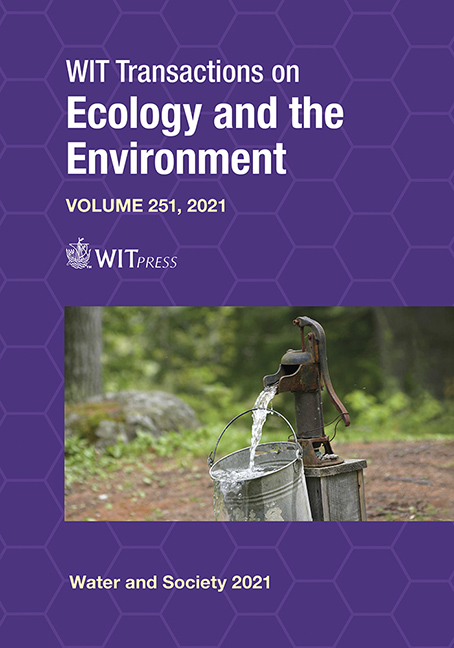HOW MANAGEMENT EFFORTS OF A LARGE HYDROPOWER FIRM IMPACT SUSTAINABILITY IN THE COLOMBIAN ANDES: A MULTIVARIATE ANALYSIS OF SOCIETY’S PERCEPTIONS
Price
Free (open access)
Transaction
Volume
251
Pages
13
Page Range
23 - 35
Published
2021
Size
323 kb
Paper DOI
10.2495/WS210031
Copyright
Author(s)
DANIEL CORTÉS-BORDA, JORGE-ANDRÉS POLANCO, MANUELA ESCOBAR-SIERRA
Abstract
When it comes to sustainability, watersheds and hydropower firms must be conceived as a whole. Namely, hydropower dams impact the three dimensions of sustainability of watersheds, while dams’ lifetime is lowered by unsustainable practices taking place in the watersheds. Management of hydropower firms aiming at sustainability might ensure the long-term use of dams without compromising ecosystems and society’s welfare. We aim to assess the impact of management efforts of a large hydropower firm on the sustainability of the influenced watersheds from the perceptions of society. We build on survey data assessing the social perception of the impacts caused by a large hydropower plants operation; and the firm’s management efforts aiming at sustainability. To this end, we perform a stepwise multilinear regression of ad-hoc impact management indices (independent variables) and impact indices (dependent variables). Data comprises more than 600 surveys from community, policymakers and industry, from two watersheds in Colombian Andes. Results revealed a positive correlation between all the impact indices and the management indices concerning environment and economy-society. The remaining management indices showed no (or low) correlation with impacts. Findings suggest that, despite firm’s sustainability awareness, society perceives low positive impact in due to (what they consider) firm’s few impact management efforts in environmental indices (i.e., erosion and deforestation) and socio-economic indices (i.e., income alternatives in agriculture, fisheries and tourism activities). Other efforts are not perceived as (positive or negative) consequences of the impact. Correlation results provided valuable information, for scholars and practitioners, on the interaction of dams and watersheds. On one hand, the theoretical implications showed how a holistic approach of sustainability is needed to better understand the complexity of this relationship. On the other, the management implications gave insights on how a large hydropower plant can operate in the long term while causing a positive impact on ecosystems and the local society.
Keywords
sustainability, hydropower, stepwise regression, social perception, watershed, social impact, environmental impact





